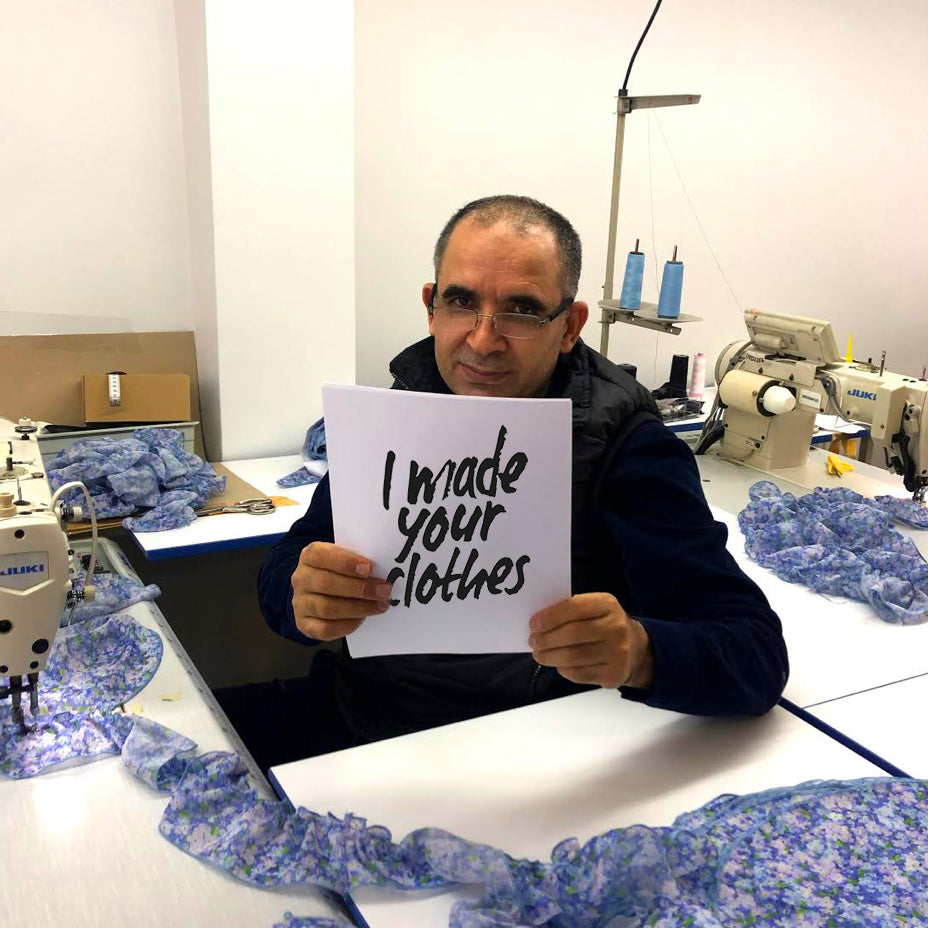
Heyho! It's Fashion Revolution Week, and you know what that means... It's time to dive deep into the supply chains of the brands we buy from and ensure they provide a safe, ethical and healthy working environment!
The pandemic has caused a financial burden for many fashion brands - small and big ones - consequentially affecting the most vulnerable people at the bottom of the supply chain. Some brands have canceled or suspended goods that were ready to be shipped. Others have refused to pay until weeks or months after factories had shipped the products. This situation has left workers with delayed or drastically reduced pay. Some workers have also been fired without severance.

In light of these recent events, Fashion Revolution Day seems more relevant than ever. Fashion Revolution Day takes place annually on the 24th of April, the anniversary of the 2013 Rana Plaza building collapse. It turned into a proper movement aimed at promoting transparency in the fashion supply chain and bringing attention to the effects of fast fashion on factory workers. We want to take part in this movement and share with you who and what is behind our clothes.
We at OhSevenDays are huge proponents of the Fashion Revolution movements, and look to their standards as a soundboard for all of our sourcing and production! We want to share the inner workings of our production chain to ensure we maintain a high level of transparency.

Fabric sourcing is our first and one of the most important steps of our production. Fabric production is a huge polluter of water, landfills and releases large amounts of greenhouse gases every year. For this reason, we decided as a brand to exclusively use surplus/deadstock quantities instead of adding more new fabric to an over-saturated industry.
Turkey is one of the leading countries in the textile industry and therefore has a treasure trove of leftover fabrics! We source our fabrics from all over Istanbul and specifically seek fast-fashions leftovers that would otherwise go to waste.
These off-cut fabrics can have small defaults like holes and discolorations. Our production team works hard to work around these faults, to up-cycle and save what we can! The process of using deadstock fabric is usually very surprising and unpredictable. You never know the faults you might encounter until it's unraveled; but that’s the thrill of it! We're lucky to have found manufacturers that appreciate the work we're trying to do and are willing to handle these tricky fabrics.

We're excited to announce we've recently changed our manufacturing facility from a small 3-person atelier, to a mid-size factory due to our business has grown in the last 18 months! Our new facility works based on the principle "do not allow employees to work under conditions you yourself wouldn't want to work''.
Our new facility operates under a strict code of conduct and has received certification from Sedex Ethical Trade Membership (https://www.sedex.com/about-us/), an organisation ensuring businesses achieve certain standards of ethical, health, and safe working environments.
We encourage you as a consumer to also as the question 'Who Made My Clothes', and put the necessary pressure on brands to become more transparent with their supply chains. Please send us an email if you have any questions for us, we're always happy to share more ;)




